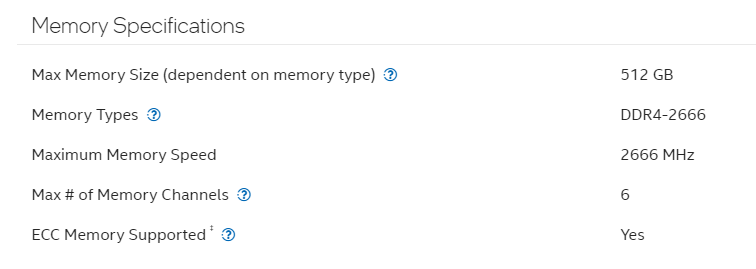i9-12900KS ? According to this link (Intel® Core™ i9 Processors ) , i9-12900KS has the best Max Turbo Frequency and the highest core numbers simultaneously.
But what does that "S" mean at the end? Last time I made the mistake of buying i9-12900KF, which later I learnt from this forum that "F" means it doesn't have the integrated graphics. So perhaps "S" also mean something I didn't expect?
And what about the other companies like AMD?
My only use is computation power for my big data (>30GB) statistical analysis.
But what does that "S" mean at the end? Last time I made the mistake of buying i9-12900KF, which later I learnt from this forum that "F" means it doesn't have the integrated graphics. So perhaps "S" also mean something I didn't expect?
And what about the other companies like AMD?
My only use is computation power for my big data (>30GB) statistical analysis.




